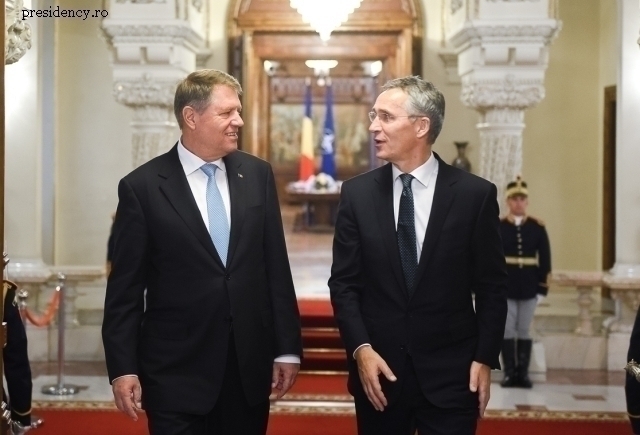Bucharest hosts NATO Parliamentary Assembly
The waning rate of investment in new technologies might put NATO at a disadvantage, especially in its relations with Russia and China. This is one of the conclusions of a document presented in Bucharest in the autumn session of the NATO PA

Florentin Căpitănescu, 09.10.2017, 13:29
The North-Atlantic Treaty Organization risks losing its technological edge unless it invests more in research and development (R&D), reads a report made public during the 63rd session of NATOs Parliamentary Assembly hosted by Bucharest. Presented by NATO General Rapporteur Thomas Marino of the United States, the document is titled: “Maintaining NATOs Technology Edge: Strategic Adaptation and Defence Research & Development.
According to the report, NATOs technological edge is warning against the rapid advancements in the fields of science and technology, some of which might potentially disrupt the strategic balance as regards production on the short term and artificial intelligence on the long term. Thomas Marino says that, for the time being, NATO is not prepared to deal with these challenges, particularly while considering the dropping rate of R&D investment in member states.
Conversely, the NATO official pointed out, Russias R&D budget doubled over 2012-2015, and some experts say that by 2020 Chinas budget for research and development will exceed that of the United States, which currently accounts for two thirds of NATOs total spending. Thomas Marino highlighted the fact that NATO members must abide by their commitment to allocating 2% of their GDP to defence spending, a goal Romania has already achieved.
Additionally, the NATO official referred to the idea of a common EU security fund, which might be instrumental in further expanding research and development capabilities and rebuilding the basis of the EUs defence industry. Another document drafted by the NATO PAs Political Committee shows that Russia is strengthening its military capabilities and intensifying its actions on NATOs eastern borders.
Under the heading “Russia – from Partner to Competitor, the report highlights Moscows actions aimed at exerting pressure on the whole Euro-Atlantic area. Moscows challenging attitude towards the Alliance and its ingressions in Ukraine, Georgia and other NATO partners are undermining the stability of NATO and the EU. The report recommends all allies to remain committed to a strong deterrence posture and stand up against Russias continuous provocations and aggressions against NATO partner countries, particularly Ukraine and Georgia. The document concludes that allies should maintain periodic and meaningful dialogue with Russia, although some topics as counter-terrorism or the peacemaking process in Syria remain very delicate topics.






























